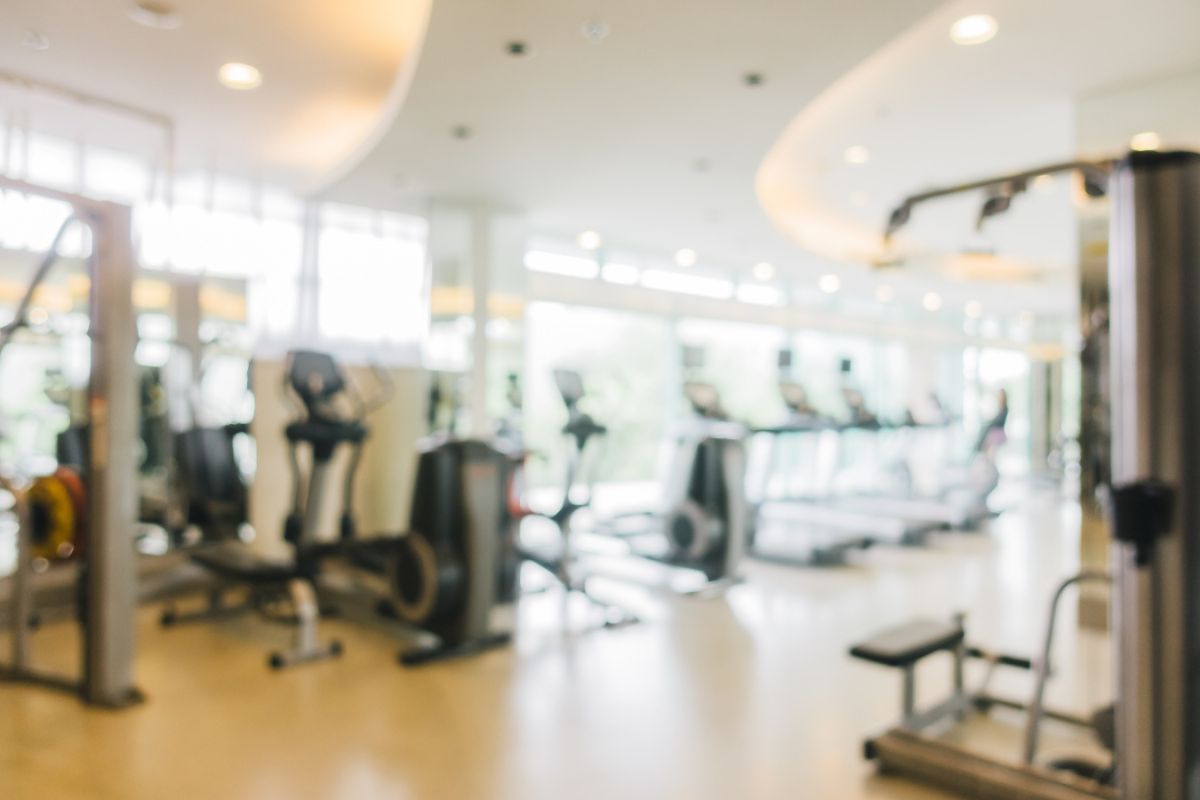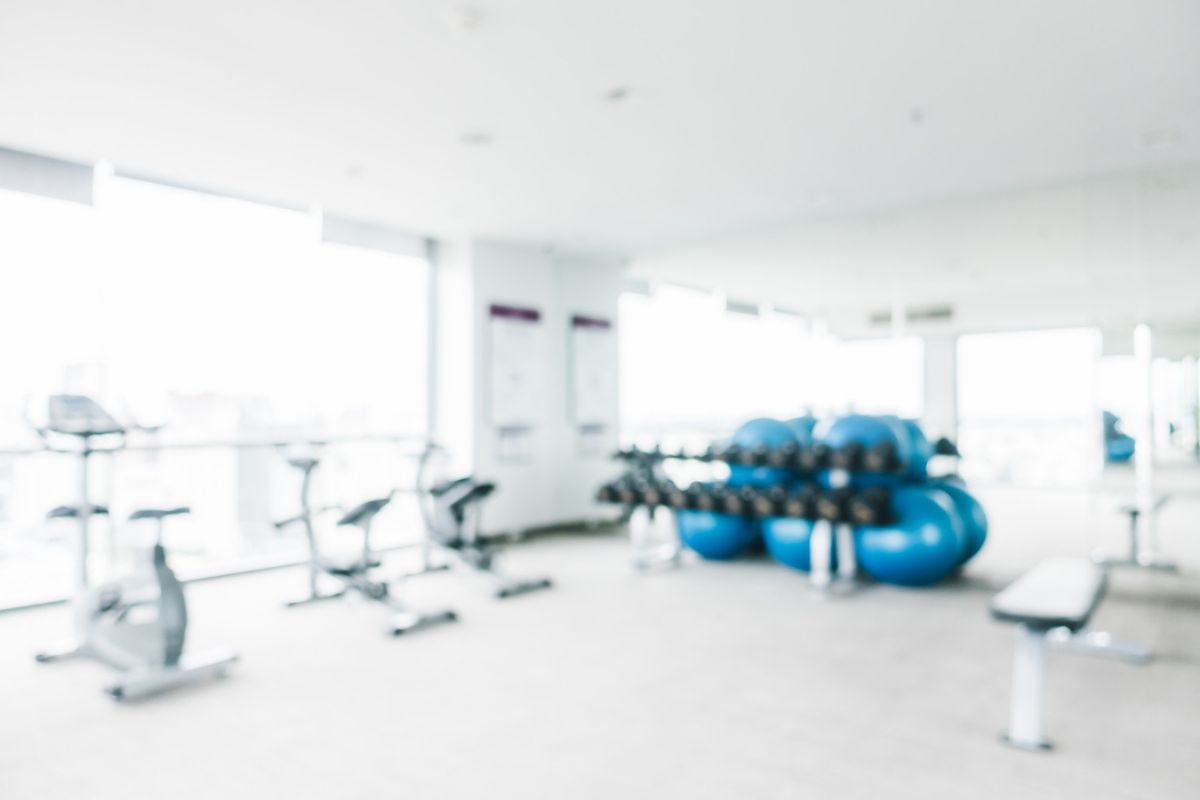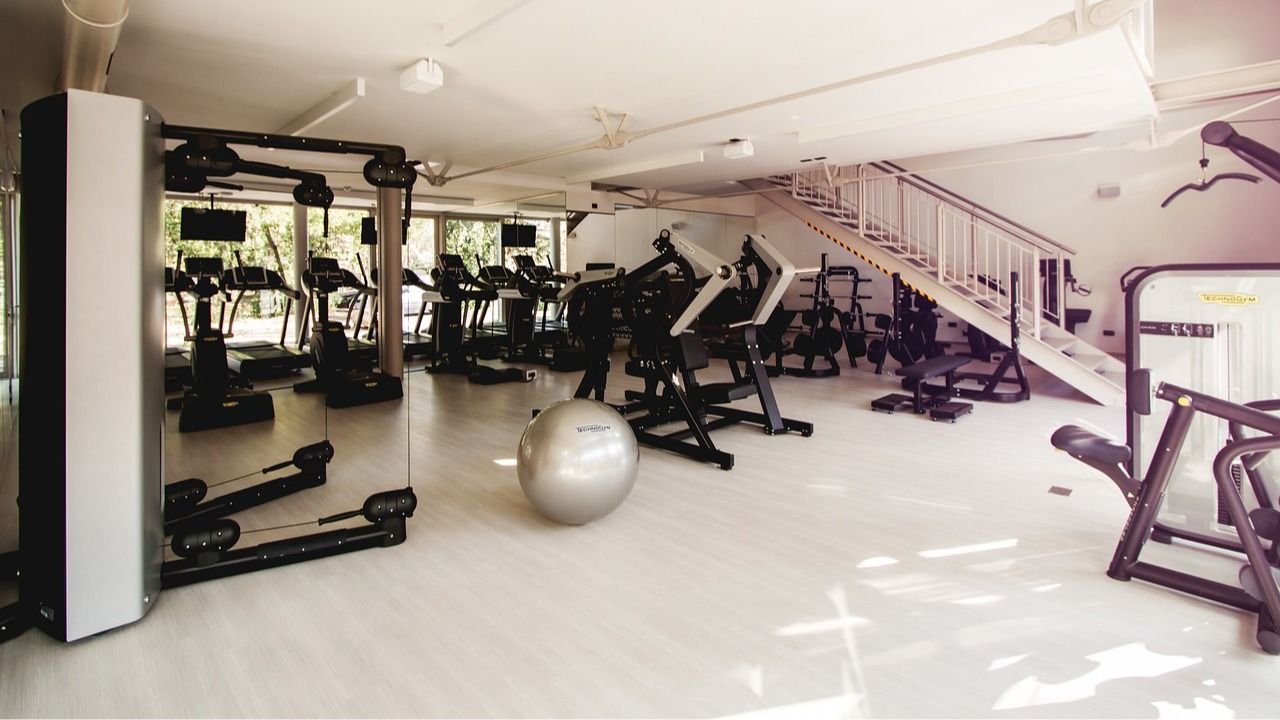How to set up a fitness studio in Singapore?
Thinking of starting a fitness studio in Singapore? This step-by-step guide covers everything from licensing and location to equipment, staffing, and marketing to help you launch a successful studio.
Singapore’s fitness industry has experienced steady growth over the past decade, driven by rising health consciousness, an increasing number of working professionals seeking work-life balance, and a supportive government stance on wellness and active lifestyles. From high-end boutique gyms in the CBD to yoga and Pilates studios in the heartlands, the fitness scene is becoming increasingly diverse and competitive.
According to the Sport Singapore ActiveSG Report and Statista, participation in physical activities among Singapore residents has increased significantly, with more people integrating regular exercise into their daily routines.
This evolving consumer behaviour has opened up substantial opportunities for entrepreneurs to launch niche fitness businesses—ranging from functional training studios and HIIT gyms to wellness-centric offerings like barre and breathwork classes.
However, setting up a fitness studio in Singapore isn’t just about having a passion for fitness. It requires careful planning, compliance with local regulations, and an understanding of the local market.
From registering your business with ACRA to securing URA’s approval for change of property use, every step involves adhering to Singapore’s strict business and operational guidelines.
This article guide is designed to walk you through the entire process of starting a fitness studio in Singapore—covering everything from selecting your niche and choosing the right location to understanding legal requirements, sourcing equipment, hiring certified instructors, and applying for government grants.
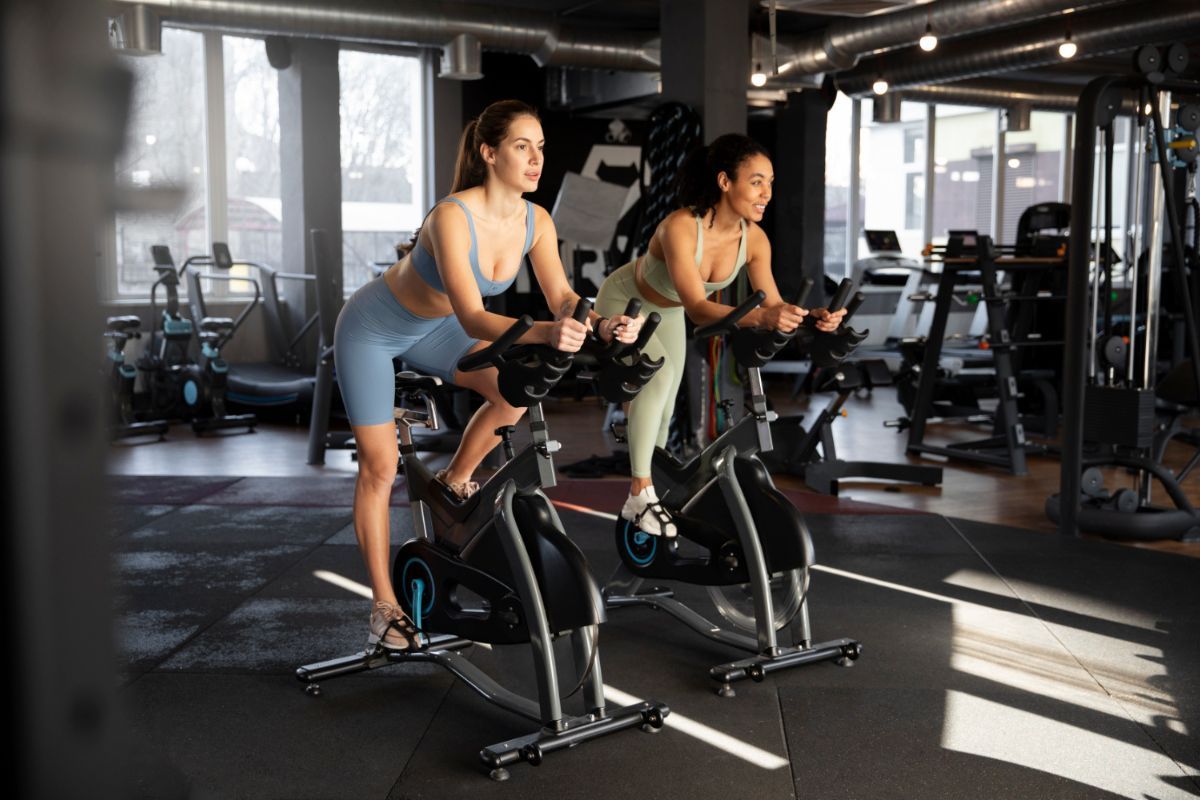
Source: Freepik
A. Define your business model
Before diving into location scouting or renovation plans, it's essential to first clarify your business model. Your chosen model will define your studio’s identity, operational flow, customer experience, and ultimately, profitability. In Singapore’s competitive fitness landscape, finding your unique value proposition is key.
Choose your niche carefully
Singapore’s fitness market caters to diverse tastes, from the CBD-based professionals seeking quick, effective workouts to heartland communities wanting accessible and affordable fitness options. Consider these popular niche categories:
1. Boutique fitness studio:
Offers specialised, intimate classes (e.g., HIIT, spinning, boxing, functional fitness). Ideal for urban areas with high disposable incomes like Orchard Road, Raffles Place, or Telok Ayer.
2. Yoga and Pilates studios:
Highly popular among Singaporeans seeking holistic fitness. Studios can be premium offerings in upscale neighbourhoods or affordable spaces in heartland areas like Tampines or Jurong.
3. Personal training gym:
Provides customised one-on-one or small-group training, often preferred by professionals or expats. Typically commands higher fees and margins due to personalisation.
4. Hybrid or virtual fitness studios:
Offers both physical and virtual classes, an excellent way to expand reach and resilience, particularly after the shift in consumer behaviour during the COVID-19 pandemic.
Determine your revenue streams
Next, think about how your studio will make money. Revenue diversification can help sustain your business in a competitive market like Singapore. Consider these revenue models:
1. Membership packages:
Monthly, quarterly, or annual memberships offering unlimited or limited classes.
2. Class packages and drop-in rates:
Flexible options where customers can purchase sessions in bulk (5, 10, or 20 sessions), suitable for those who prefer flexibility.
3. Personal training sessions:
One-on-one or small-group sessions at a premium price.
4. Corporate wellness programs:
Collaboration with Singapore-based corporations providing wellness sessions to their employees—a lucrative and growing segment.
5. Event and workshop hosting:
Supplement your regular offerings with specialised workshops or wellness events, featuring guest instructors or collaborations with wellness brands.
6. Facility rental revenue:
Rent out studio space during non-peak hours, weekends, or evenings to third-party trainers or wellness practitioners.
💡 Pro tip: Want the freedom to offer your clients anything—from memberships and class packages to personal training, corporate wellness programs, and facility rentals? With Rezerv, you can effortlessly manage it all from one easy-to-use platform. Simplify your operations and maximise your studio’s potential with Rezerv!
Understand your customer segment
Identifying your target audience is crucial. Are you targeting busy professionals working in the CBD, young couples in suburban districts, or expat communities? Understanding your core demographic will shape decisions like pricing, marketing strategy, and class timing.
Consider hybrid & digital options
According to Statista, the COVID-19 pandemic significantly shifted consumer behavior worldwide—including in Singapore—when it comes to fitness and sports participation.
With lockdowns, safe distancing rules, and gym closures, many Singaporeans turned to digital solutions to stay active at home. This change wasn’t just temporary—it accelerated the long-term adoption of virtual and hybrid fitness models.
As a result, Singaporeans are now increasingly open to online classes, fitness apps, and hybrid memberships that combine both in-studio and at-home experiences. To stay competitive, it’s worth incorporating digital offerings such as:
- Online classes via Zoom or pre-recorded content
- Hybrid memberships with both in-person and virtual access
- On-demand workout libraries through a branded app or member portal
These options not only cater to evolving consumer preferences but also help diversify your revenue streams and provide operational flexibility during unexpected disruptions.
Leverage technology effectively
Modern fitness studios succeed by delivering convenience and a seamless experience to their customers, largely driven by technology. A reliable management system that handles bookings, scheduling, payments, and client management is essential.
One locally-made platform worth considering is Rezerv. Built proudly in Singapore, Rezerv understands the nuances of the local fitness industry and caters specifically to Singapore-based fitness studios. It offers robust tools to simplify bookings, streamline scheduling, and handle payments easily through local payment gateways like PayNow and GrabPay.
Importantly, Rezerv is the only fitness software in Singapore that does not charge any transaction fees—meaning your studio keeps 100% of your earnings.
(Note: Standard transaction fees charged by payment gateways like Stripe or Fiuu still apply, but Rezerv itself doesn’t charge any additional fees on top of that.)
Choosing a system like Rezerv ensures that your operational processes run efficiently, allowing you to focus on delivering exceptional customer experiences and growing your fitness business sustainably.
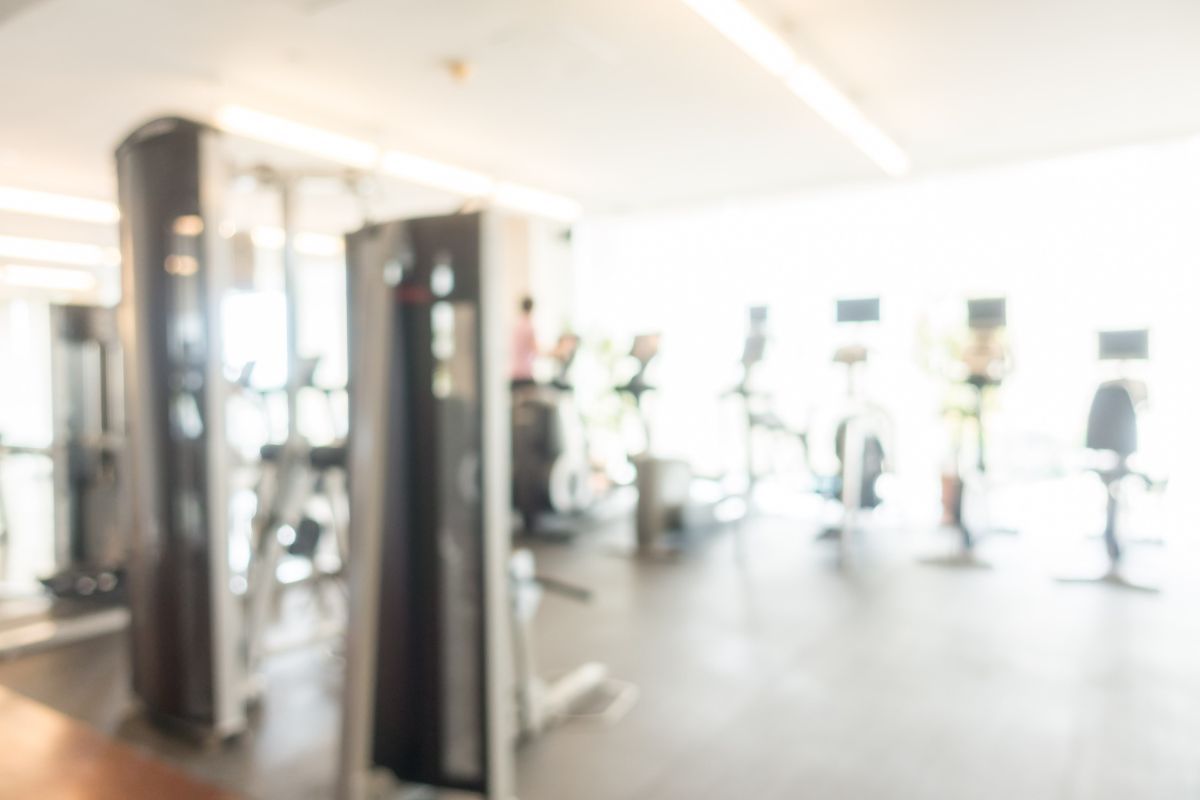
Source: mrsiraphol on Freepik
B. Market research & location
Choosing the right location for your fitness studio in Singapore isn’t just about finding an empty space—it’s about positioning your business in the right neighbourhood, understanding your target demographic, and analysing local competition. Market research and location strategy go hand-in-hand and will directly influence your visibility, pricing strategy, and long-term success.
Research the local fitness landscape
Start by studying the fitness market in your desired area. Identify what types of fitness studios already exist nearby, what services they offer, how much they charge, and what kind of clientele they attract. Some things to pay attention to:
- Are there gaps in the market you can fill (e.g., no Pilates options in the area)?
- Are your competitors thriving or struggling—and why?
- What pricing structures are common in the area?
Tools like Google Maps listings can give you a quick snapshot of nearby studios. Social media is also a valuable tool—scroll through Instagram or TikTok to see which gyms are trending and how they engage with their local community.
Understand your target audience
Location choice should be based on the kind of customer you’re aiming to serve. Singapore’s districts vary widely in terms of demographics, lifestyle, and spending habits:
1. Central Business District (CBD):
Ideal for boutique fitness studios, HIIT classes, and lunchtime express workouts catering to working professionals.
2. Heartland areas (e.g., Tampines, Toa Payoh, Jurong, Ang Mo Kio):
Great for community-focused studios offering accessible fitness options for families, students, or seniors.
3. Expat-friendly neighbourhoods (e.g., Holland Village, River Valley, East Coast):
Suitable for premium fitness studios or niche wellness concepts like reformer Pilates, barre, or yoga therapy.
4. New growth areas (e.g., Punggol, Sengkang, Bidadari):
Emerging residential hubs with potential for early brand positioning and long-term growth.
The clearer you are about who you’re serving, the easier it is to make informed decisions about pricing, class offerings, and your overall brand positioning.
Evaluate foot traffic and accessibility
Convenience plays a big role in fitness attendance. Look for units that are:
- Within walking distance to an MRT station
- Located near office clusters, condominiums, or shopping malls
- Easily accessible by bus or major expressways
Studios with good foot traffic and visibility—like those on ground floors, corner units, or within lifestyle malls—tend to attract more walk-ins and passive exposure.
Check URA zoning and building usage
Before committing to a unit, make sure the space is approved for fitness use. In Singapore, not all commercial or industrial properties are legally permitted to host fitness activities. You may need to:
- Confirm the approved use category with the Urban Redevelopment Authority (URA)
- Apply for Change of Use if the property is not already zoned for fitness or sports use
- Comply with HDB or MCST guidelines if your studio is within a mixed-use building
It’s also a good idea to check for potential renovation restrictions, soundproofing needs (especially for high-impact workouts), and parking availability.
In short, don’t rush into signing a lease just because a unit looks attractive or is “cheap.” Do your homework, walk the area at different times of day, talk to nearby businesses, and really get to know the people who live or work there. Location can make or break a studio—so take the time to get it right.
Source: mrsiraphol on Freepik
C. Legal requirements & business registration
Setting up a fitness studio in Singapore requires more than just securing a space and buying equipment. To operate legally, you must register your business, obtain the appropriate permits, and comply with various regulatory requirements set by government authorities. This ensures your studio is not only legitimate but also safe and professionally run.
Registering your business with ACRA
All businesses in Singapore must be registered with the Accounting and Corporate Regulatory Authority (ACRA). You’ll first need to decide on a business structure. The most common options include:
- Sole proprietorship: Suitable for solo fitness entrepreneurs but offers no legal distinction between personal and business assets.
- Partnership: Ideal if you're starting the business with others, but still lacks liability protection.
- Private Limited Company (Pte Ltd): The most popular choice for fitness studios. It offers limited liability, better credibility, and eligibility for government grants.
You can register your business online via BizFile+, and the process is usually completed within 1-2 working days unless name approval or additional vetting is required.
Apply for required licences and approvals
Depending on your studio’s offerings and setup, you may need additional approvals or licences:
1. Change of Use Approval (URA):
If your chosen unit is not already approved for fitness activities, you’ll need to apply to the Urban Redevelopment Authority (URA) for a Change of Use. This is especially common when converting retail or office spaces into gyms.
2. Fire Safety Certificate (SCDF):
For most commercial renovations, particularly those involving partitioning, sprinkler systems, or emergency exits, you must obtain a Fire Safety Certificate (FSC) from the Singapore Civil Defence Force (SCDF).
3. Public Entertainment Licence (if applicable):
If your studio features loud music, live DJs, or evening events that may be classified under entertainment, you may need to apply for a Public Entertainment Licence from the Singapore Police Force.
4. Workplace Safety and Health (WSH) compliance:
Ensure that your space meets safety standards under the Workplace Safety and Health Act. This includes installing proper flooring, safe equipment placement, and clear emergency exits.
Hiring staff? Follow MOM guidelines
If you plan to hire fitness trainers, front-desk staff, or cleaning personnel, you must adhere to the Ministry of Manpower (MOM) guidelines:
- Provide employment contracts and ensure compliance with local labour laws (rest days, CPF contributions, etc.)
- Contribute CPF (Central Provident Fund) for all Singaporean and PR employees
- If hiring foreigners, apply for the appropriate work passes (e.g., S Pass, Employment Pass, or Work Permit) and adhere to quota limits
Read more about this on: Hiring & certifications section
Business insurance (highly recommended)
While not mandatory, it's strongly advisable to get comprehensive business insurance that covers:
- Public liability insurance (in case of injury on-site)
- Property and equipment insurance
- Work injury compensation insurance for employees
This helps safeguard your business from unexpected liabilities and operational disruptions.
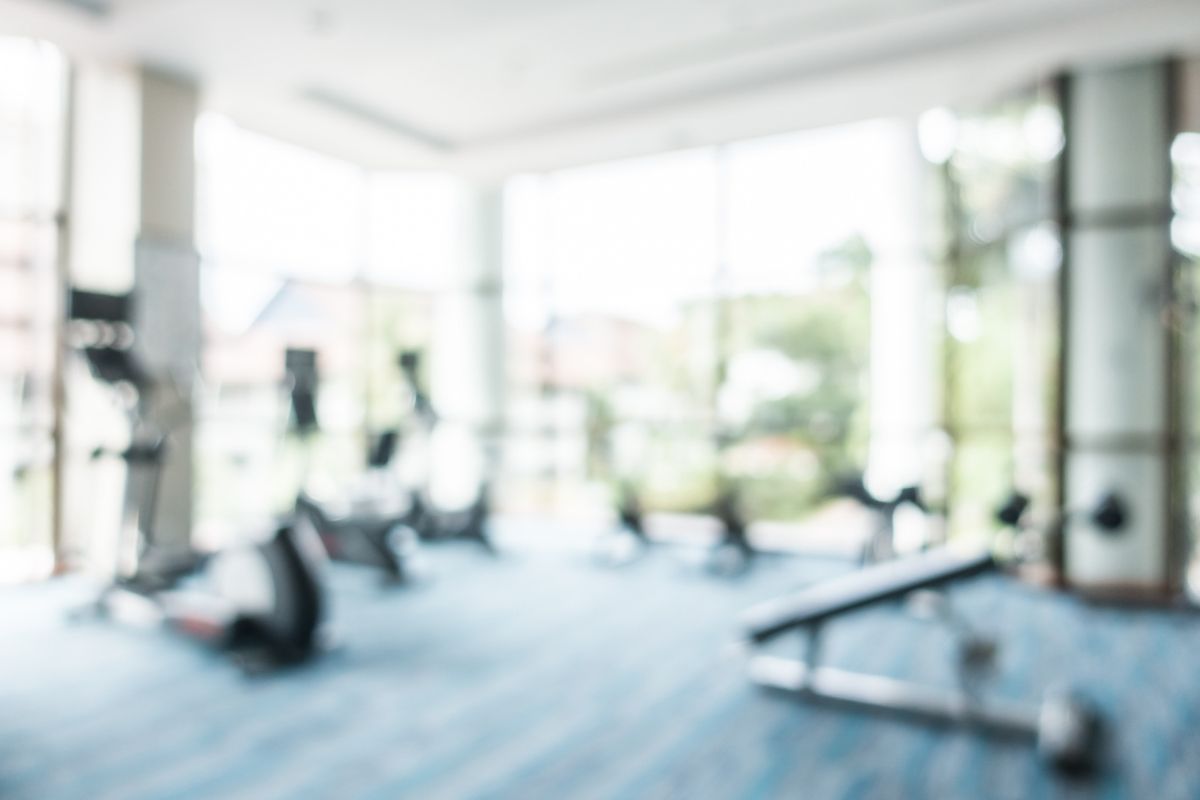
Source: mrsiraphol on Freepik
D. Renting or renovating a space
Once your business is registered and you’ve narrowed down the ideal location, the next big step is securing and setting up your studio space. In Singapore, this process involves careful planning—not only to make the space functional and welcoming, but also to ensure full compliance with building and safety regulations.
Finding the right commercial unit
When looking for a space to rent, consider the following:
1. Zoning approval:
Not all commercial units can legally operate as fitness studios. Always check the approved use with the Urban Redevelopment Authority (URA). If the space is not zoned for fitness use, you’ll need to apply for Change of Use approval.
2. Lease terms:
Commercial leases in Singapore typically range from 1 to 3 years. Pay close attention to terms related to:
- Renovation restrictions
- Operating hours
- Subletting clauses
- Renewal and termination conditions
3. Location-specific needs:
Consider nearby amenities like showers, changing rooms, or car parks. Also think about the floor type—ground floor units are better suited for high-impact classes to reduce noise complaints.
Planning renovations
Once your unit is secured, the renovation process begins. This stage is your opportunity to create a professional, safe, and client-friendly environment that reflects your brand.
Here’s what to consider:
1. Flooring:
Invest in shock-absorbent flooring for functional or high-intensity areas, and non-slip mats for yoga or Pilates zones.
2. Mirrors and lighting:
Wall mirrors are essential for many class types. Lighting should be practical but also contribute to the overall ambience—natural light is a big plus in yoga or wellness studios.
3. Ventilation and air-conditioning:
Studios must be well-ventilated, especially in a humid climate like Singapore. Install high-quality air-conditioning and ensure good airflow.
4. Toilets and shower facilities:
If your unit doesn’t come with built-in washrooms, consider adding these if permitted by the building management and URA guidelines.
5. Soundproofing:
Particularly important for loud classes (e.g., HIIT, spin), or if you're located in a mixed-use development or HDB commercial unit.
6. Fire safety compliance:
If your renovation involves major structural works, fire alarms, or sprinklers, you must engage a Registered Inspector and obtain a Fire Safety Certificate (FSC) from the Singapore Civil Defence Force (SCDF) before opening.
Working with contractors
Always work with contractors experienced in commercial or fitness spaces. They’ll be more familiar with:
- MCST renovation guidelines (if in a strata-titled building)
- Fire safety requirements
- URA and BCA submission processes (if required)
Get proper quotations, timelines, and contracts in writing. Also factor in lead times for ordering equipment and permits—delays can happen, especially during peak renovation seasons.
Consider smart access systems
If you plan to operate an unmanned or semi-automated studio—such as 24/7 gyms or self-service personal training pods—consider integrating smart lock systems. For example, Rezerv integrates with Igloohome smart locks, allowing for:
- Time-sensitive access codes for members
- Automated unlocks synced with bookings
- Access logs to track who entered and when
This not only improves convenience but also reduces staffing costs and enhances security.
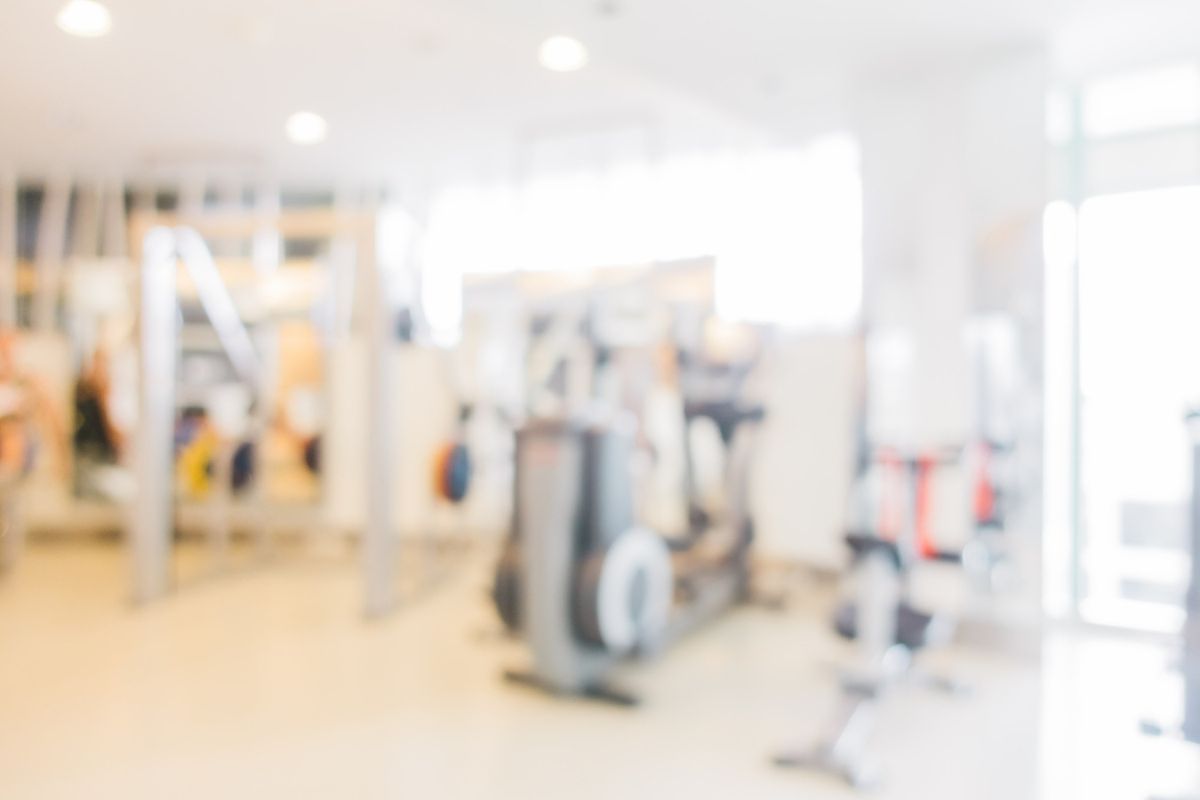
Source: lifeforstock on Freepik
E. Equipment & tech setup
Once your space is ready, it’s time to fill it with the right tools—both physical and digital—to deliver a seamless experience for your clients and a smooth operation for your team. The right setup can make a huge difference in how efficiently your studio runs and how professional it feels from day one.
Selecting the right equipment
Your choice of equipment should align with your business model, available space, and client needs. Start by listing your core services and prioritise gear accordingly.
Here’s a general breakdown based on studio types:
1. Strength & functional training studios:
Dumbbells, kettlebells, resistance bands, squat racks, TRX, medicine balls, sleds, battle ropes, and flooring that absorbs impact.
2. Yoga & pilates studios:
Mats, yoga blocks, straps, reformer machines (for Pilates), bolsters, blankets, and mirrors. Comfort and aesthetics are key here.
3. HIIT & circuit training studios:
Rowers, ski ergs, assault bikes, plyo boxes, jump ropes, and floor markers. Durable flooring and ventilation are especially important for high-intensity formats.
4. Personal training gyms:
Adjustable benches, compact machines, cable stations, and a variety of weights to cater to all fitness levels.
5. Where to buy equipment in Singapore:
- Local fitness equipment retailers like HomeGym.sg, Active Fitness, or Gymsportz offer both commercial and customised solutions.
- For larger setups or specialised imports, consider working with fitness consultants who can assist with layout planning, delivery, and installation.
Invest in studio tech infrastructure
Beyond physical gear, your tech stack will be the backbone of your operations—from scheduling and payments to client engagement and business reporting.
This is where having a purpose-built management system makes all the difference.
Use a local, all-in-one software solution
A reliable studio management software helps you automate and centralise tasks like:
- Class and appointment scheduling
- Online booking and cancellations
- Payment processing and invoice tracking
- Attendance and package usage tracking
- Email/SMS/WhatsApp marketing automation
- Customer database and reporting
Instead of stitching together multiple third-party tools, many studio owners in Singapore now use Rezerv—a locally built, all-in-one booking and management software made specifically for service-based businesses like fitness studios.
Here’s why Rezerv stands out:
- Integrated local payment methods: Supports PayNow, GrabPay, and major credit cards—catering to Singapore customers' preferred ways to pay.
- Automated marketing campaigns: Built-in tools to help you send targeted messages via email, WhatsApp, or SMS.
- Website builder with no coding required: Create a professional, mobile-optimised booking website that matches your brand—no developer or tech skills needed.
Optional add-ons to enhance experience
1. Sound system
Invest in a good audio system to make your studio livelier.
2. Wi-Fi & smart TVs/tablets
For displaying workout programs, digital waivers, or live-streaming classes.
3. CCTV & access control
Important for both security and managing unmanned studios. Rezerv’s integration with Igloo Home smart locks allows secure, timed access synced with class or appointment bookings.
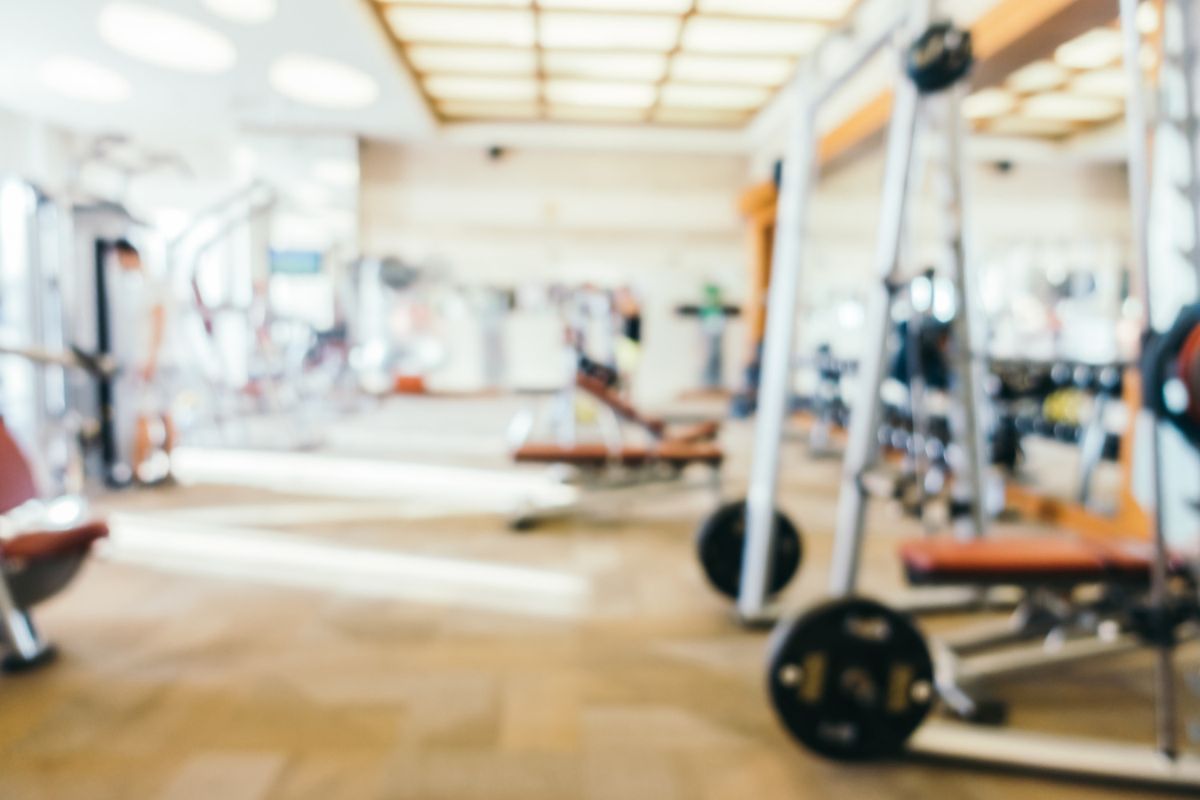
Source: lifeforstock on Freepik
F. Hiring & certifications
Hiring the right people is crucial to delivering a consistent and professional experience in your fitness studio. In Singapore, this means not only finding qualified instructors but also ensuring you comply with employment laws and relevant certifications.
Hire certified and experienced trainers
Clients today are more informed and selective—they want to train with professionals who are not only skilled but also accredited. When hiring instructors or personal trainers, prioritise those who hold recognised certifications from reputable organisations, such as:
- ACE (American Council on Exercise)
- NASM (National Academy of Sports Medicine)
- ISSA (International Sports Sciences Association)
- NSCA (National Strength and Conditioning Association)
- Yoga Alliance (for yoga instructors)
- BASI, or Polestar (for Pilates instructors)
While these are internationally recognised, having prior coaching experience in Singapore (or with a Singapore-based clientele) is also a plus, as they’ll be more attuned to local expectations and cultural nuances.
You should also ensure that instructors hold valid CPR and AED certifications, which are considered standard requirements for fitness professionals in case of emergencies.
Hiring foreign trainers? Know the rules
If you’re planning to hire foreign professionals, you’ll need to follow Ministry of Manpower (MOM) regulations regarding work passes. The type of pass required depends on the position and the candidate’s qualifications:
- Employment Pass (EP): For foreign professionals with acceptable qualifications earning at least SGD 5,000/month.
- S Pass: For mid-level skilled staff with a monthly salary of at least SGD 3,150 (as of 2025), subject to quota and levy.
- Work permit: For lower-skilled roles.
Keep in mind:
- Work pass applications take time and are subject to approval.
- Quotas and levies apply for S Pass and Work Permit holders.
- You’ll need to provide justifiable reasons for hiring foreign staff over locals.
For streamlined processing, engage an MOM-licensed employment agency if needed.
Understand your obligations as an employer
Once you start hiring, you’re responsible for complying with Singapore’s employment laws. This includes:
- Central Provident Fund (CPF): Required for all Singapore Citizens and Permanent Residents (17% employer contribution as of 2025, depending on wage and age group).
- Employment contracts: Clearly outline salary, working hours, duties, benefits, probation terms, and termination clauses.
- Leave entitlements: Follow the Employment Act guidelines on annual leave, sick leave, public holidays, and maternity/paternity leave.
- Insurance: Ensure your employees are covered under Work Injury Compensation Insurance if required.
You can refer to the MOM’s Employment Act guidelines or consult a local HR/payroll provider to ensure full compliance.
Consider freelancers or part-time instructors
If you're just starting out or want to keep costs lean, working with freelance or part-time instructors can be a practical option. However, you must:
- Clarify their employment status in writing
- Ensure they have proper certifications and insurance coverage
- Understand that freelancers are not entitled to CPF contributions or employee benefits
Source: lifeforstock on Freepik
G. Marketing & branding
Launching your fitness studio is just the beginning—getting people through the door and turning them into loyal clients takes smart branding and consistent marketing. In Singapore’s saturated fitness scene, your ability to stand out hinges on how well you position your brand and connect with your audience.
Build a strong brand identity
Your brand is more than a logo or colour scheme—it’s the personality and promise your studio makes to your clients.
Here’s what to define early on:
- Studio name & logo: Keep it clean, memorable, and reflective of your niche (e.g., high-energy vs. wellness-oriented).
- Brand voice & tone: Are you friendly and empowering? Bold and performance-driven? Calming and holistic?
- Visual identity: Consistent fonts, colours, and imagery across all platforms (website, social media, signage).
- Core messaging: Be clear about what makes your studio unique—do you focus on small group training, premium amenities, personalised coaching, or community vibes?
In a competitive market like Singapore, a well-crafted brand helps you attract the right kind of clients and build long-term loyalty.
Create a professional online presence
Most people will discover your studio online—so your digital storefront needs to make a great first impression.
With Rezerv, you can easily build a custom-branded website with zero coding required. It’s mobile-friendly, booking-ready, and fully integrated with your payment and class scheduling system. That means new clients can find your studio, learn about your offerings, and book their first class all in one seamless flow.
Make sure your website includes:
- Class schedules and pricing
- Trainer bios and studio story
- High-quality photos or videos
- Easy-to-use booking system
- Integrated payment options (PayNow, credit card, etc.)
Get discovered with local SEO & directories
Optimise your website and Google Business Profile so people searching for terms like “yoga studio in Orchard” or “HIIT classes near me” can find you easily.
Also consider listing your studio on:
- ClassPass Singapore
- Google Maps
- Local wellness directories
Encourage satisfied clients to leave Google reviews—it significantly boosts local credibility and visibility.
Use social media to build community
Singaporeans are highly active on social media, especially Instagram, TikTok, and increasingly, Telegram. Use these platforms to:
- Share workout clips, client transformations, or behind-the-scenes content
- Introduce your instructors and showcase your studio’s vibe
- Promote trial classes, seasonal offers, or referral programs
- Run giveaways and collaborate with other local wellness brands
Consistency is key—post regularly, engage with followers, and use localised hashtags like #sgfitness, #singaporegym, or niche-specific ones like #sgyoga or #fitspoSG.
Collaborate with influencers and KOLs
Partnering with Singapore-based fitness influencers can help boost brand awareness quickly. Look for micro-influencers who align with your brand values and have high engagement in your niche.
Popular strategies include:
- Inviting them for a trial class in exchange for a review
- Collaborating on limited-time promo codes for their followers
- Hosting special events or workshops featuring them as guest trainers
These collaborations often lead to high-quality user-generated content and increase credibility among potential clients.
Run targeted paid ads
To fast-track your exposure, consider running Facebook and Instagram ads targeting:
- Singaporeans aged 20–45 interested in fitness or wellness
- Users within a 5km radius of your studio
- Audiences based on gym or yoga interest categories
Use high-quality visuals and highlight a clear call-to-action (e.g., “Book a Free Trial Class Today”). Bonus tip: retarget website visitors with follow-up ads to increase conversions.
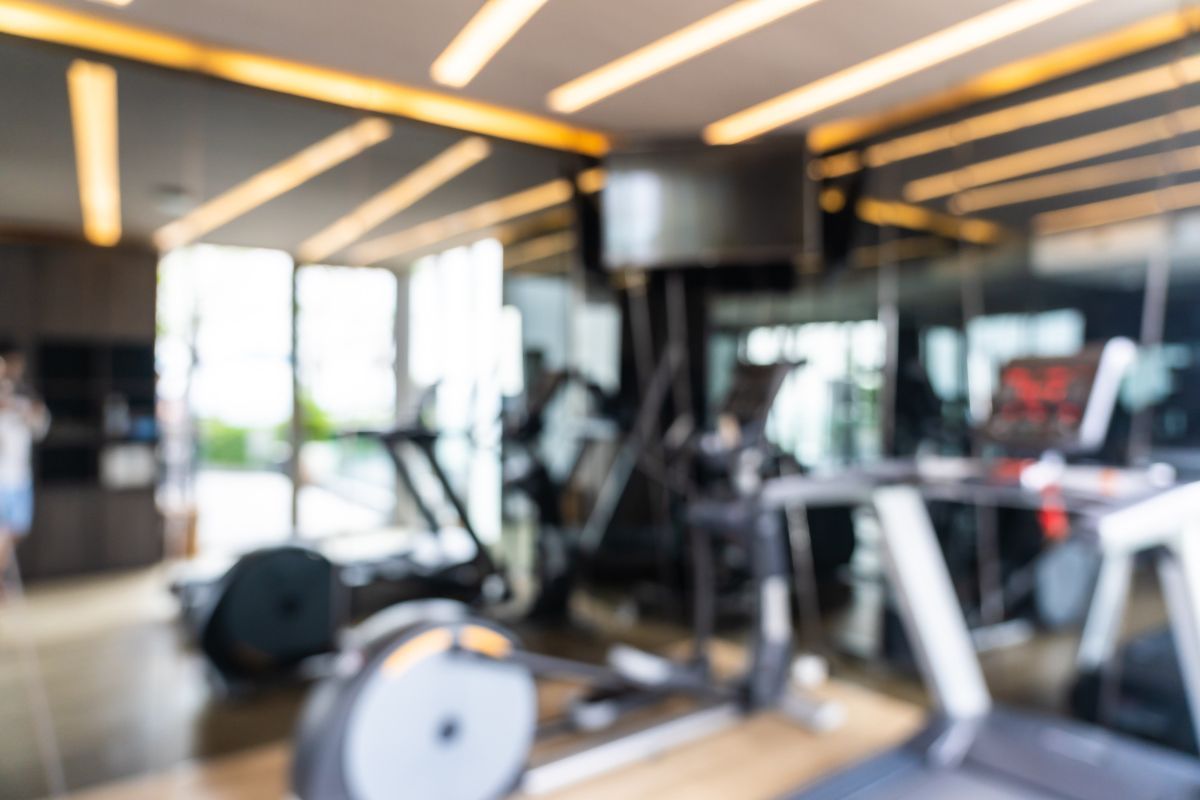
Source: lifeforstock on Freepik
H. Financial planning & grants
Starting a fitness studio in Singapore is an exciting venture, but it also requires careful financial planning. From initial capital outlay to ongoing operational costs, having a clear budget and understanding the support available can set you up for long-term success—and help you avoid common cash flow pitfalls in the early months.
Estimate your startup costs
Your initial capital will vary based on location, size, and business model, but here are the key cost categories to consider:
Estimated Range (SGD)
Renovation & Fit-Out
$20,000 – $80,000+
Equipment & Flooring
$10,000 – $50,000
Software & Tech Setup
$500 – $5,000
Initial Rent & Deposits (3-6 months)
$10,000 – $50,000
Staff Hiring & Training
$5,000 – $20,000
Marketing & Branding
$3,000 – $10,000
Licensing & Compliance
$500 – $3,000
Working Capital (first 3-6 months)
$10,000 – $30,000
Tip: Always budget for unexpected expenses. It’s wise to set aside 10–15% of your capital as a buffer.
Open a business bank account
Once your company is registered, set up a corporate bank account to separate personal and business finances. Most major banks in Singapore—like DBS, UOB, OCBC, and Maybank—offer SME-friendly packages with low initial deposits and online banking tools.
Track cash flow & use accounting software
Keeping track of your income and expenses is essential, especially when applying for grants or loans. Use cloud-based accounting software like Xero, QuickBooks, or even locally integrated platforms.
Many studio owners also use Rezerv’s reporting tools to generate performance reports, monitor revenue, and track package redemptions—all in one dashboard.
Understand GST obligations
If your annual revenue exceeds SGD 1 million, you are required to register for Goods and Services Tax (GST) with IRAS. Once registered, you must charge 9% GST (as of 2024) on your services and submit quarterly filings. If you're under the threshold, registration is optional, but some businesses opt in for legitimacy or to claim GST on business expenses.
Explore government grants for SMEs
Singapore offers several grants and funding schemes to support local businesses. Here are a few relevant ones for fitness studio owners:
1. Enterprise Development Grant (EDG)
- Helps businesses improve productivity, innovation, or expand overseas
- Can cover branding, process automation, and business strategy development
- Up to 50% support for local SMEs
- Requires a registered company and financial documents
2. Productivity Solutions Grant (PSG)
- Supports adoption of pre-approved IT solutions and equipment
- Fitness studios can use this to adopt CRM software, POS systems, or accounting tools
- Up to 50% subsidy on eligible solutions
- Check GoBusiness Gov Assist for the latest approved vendors
3. Startup SG Founder Grant
- Ideal if you’re starting a business for the first time
- Provides up to $50,000 in capital grant, with mentorship support from accredited partners
- You must apply through a recognised Startup SG partner and co-invest at least $10,000
4. SME Working Capital Loan
- Government-assisted financing scheme with low-interest rates
- Loan quantum of up to SGD 500,000, suitable for renovation or expansion
Note: Grant eligibility criteria may change, and most require a locally registered company with at least 30% Singaporean or PR shareholding.
I. Ongoing operations & growth
Launching your fitness studio is only the beginning. The real work—and opportunity—lies in what happens after the doors open. Running a successful fitness business in Singapore means staying organised, consistently delivering value, building community, and always looking for ways to improve and grow.
Deliver a consistent client experience
From the moment someone books a class to the time they walk out your door, every touchpoint matters. A smooth, consistent experience builds trust and encourages repeat visits.
To keep operations running smoothly:
- Use integrated tools like Rezerv to manage bookings, payments, attendance, and marketing from one place.
- Automate class reminders, payment follow-ups, and membership renewals to reduce admin work.
- Collect feedback regularly to understand what’s working and where you can improve.
Build and nurture a community
Fitness studios that thrive in Singapore often go beyond just offering workouts—they create a sense of belonging.
Ways to build community:
- Host monthly events like themed classes, wellness talks, or small-group workshops.
- Celebrate member milestones (e.g., 50 classes completed, personal records, birthdays).
- Create referral programs to encourage word-of-mouth growth.
- Maintain an active presence on platforms like Instagram and Telegram to stay connected.
When members feel part of something bigger than just a workout, retention increases naturally.
Retain clients through smart engagement
Acquiring new clients is important—but retaining them is where the real ROI lies. Focus on building long-term relationships with your members through:
- Loyalty packages with exclusive perks or pricing
- Recurring memberships that auto-renew (easily set up in Rezerv)
- Progress tracking or personalised check-ins with trainers
- Periodic promotions to reactivate inactive members
Client retention not only boosts revenue but also helps create a stable, predictable business model.
Monitor key metrics
Track your studio’s performance using data, not just gut instinct. Stay on top of important KPIs like:
- Attendance rates
- Class fill rates
- Client retention and churn
- Average revenue per client
- Customer acquisition cost (CAC)
Use tools like Rezerv’s reporting dashboard to generate real-time insights and downloadable reports to support smarter decision-making.
Expand revenue streams
Once you’ve established a strong foundation, look for ways to diversify your income:
- Offer private training or wellness consultations
- Sell branded merchandise like apparel, mats, or water bottles
- Introduce workshops, retreats, or short-term fitness challenges
- List your studio on platforms like ClassPass or wellness marketplaces to reach new audiences.
Rezerv also supports courses, events, and studio rentals, giving you multiple revenue paths without needing additional software.
Consider expansion when ready
If your studio is performing well, expanding to a second location or franchising could be a long-term goal. But before you scale, make sure:
- Your core operations are stable and replicable
- You have a strong team or training system in place
- You understand the financial and logistical demands of expansion
Don’t rush growth—scale sustainably with systems and structure in place.
Friska 🐨
Read next: Fitness marketing guide for gym & business owner
FAQ
1. How much does it cost to open a fitness studio in Singapore?
Startup costs can range from SGD 50,000 to over SGD 150,000, depending on factors like location, renovation, equipment, and staff. A lean setup in a suburban area may cost less, while a high-end studio in the CBD will require a larger investment.
2. Do I need a licence to run a fitness studio in Singapore?
Yes. While registering your business with ACRA is mandatory, you may also need a Change of Use approval from URA, a Fire Safety Certificate from SCDF, and potentially a Public Entertainment Licence (if playing loud music). Compliance with WSH standards is also required.
3. Can foreigners open a gym or fitness studio in Singapore?
Yes, foreigners can open a business in Singapore by setting up a Private Limited Company and appointing a local director. Many foreign entrepreneurs partner with local agencies to manage the incorporation process and regulatory compliance.
4. What are the best locations to open a fitness studio in Singapore?
Popular areas include:
- CBD (Raffles Place, Tanjong Pagar): Great for boutique gyms targeting professionals.
- Suburbs (Tampines, Jurong, Toa Payoh): Ideal for community-focused fitness centres.
- Expat zones (East Coast, Holland Village): Suitable for premium wellness concepts like yoga or Pilates.
5. What fitness certifications are recognised in Singapore?
Some of the most recognised certifications include:
- ACE (American Council on Exercise)
- NASM (National Academy of Sports Medicine)
- ISSA (International Sports Sciences Association)
- Yoga Alliance (for yoga instructors)
- BASI, and Polestar (for Pilates)
- CPR and AED certifications are also expected.
6. Do I need insurance to operate a gym in Singapore?
While not legally mandatory, business insurance is strongly recommended. Key policies include public liability, equipment insurance, and work injury compensation insurance if you employ staff.
7. Is there any government support for opening a fitness studio in Singapore?
Yes. Singapore offers various SME grants such as:
- Enterprise Development Grant (EDG)
- Productivity Solutions Grant (PSG)
- Startup SG Founder Grant
- You can also apply for SME Working Capital Loans through local banks.
8. What software is best for managing a fitness studio in Singapore?
Rezerv is a popular, locally built software made specifically for Singapore-based fitness studios. It includes features like booking management, local payment integration (PayNow, GrabPay), automated marketing tools, and a website builder with no coding required.
And unlike many other platforms, Rezerv charges no commission on your income—you keep 100% of your revenue (except for payment processor fees).
9. Can I run a 24/7 gym in Singapore?
Yes, but you’ll need to ensure your studio meets security, noise control, and fire safety requirements. Many 24/7 studios use smart lock systems (like Igloo Home, integrated with Rezerv) to provide secure, timed access to members.
10. How do I attract clients to a new fitness studio in Singapore?
Use a combination of:
- Social media marketing (Instagram, TikTok, Facebook)
- Referral programs and free trial classes
- SEO-optimised website with online booking (Rezerv offers this)
- Google reviews and ClassPass listings
